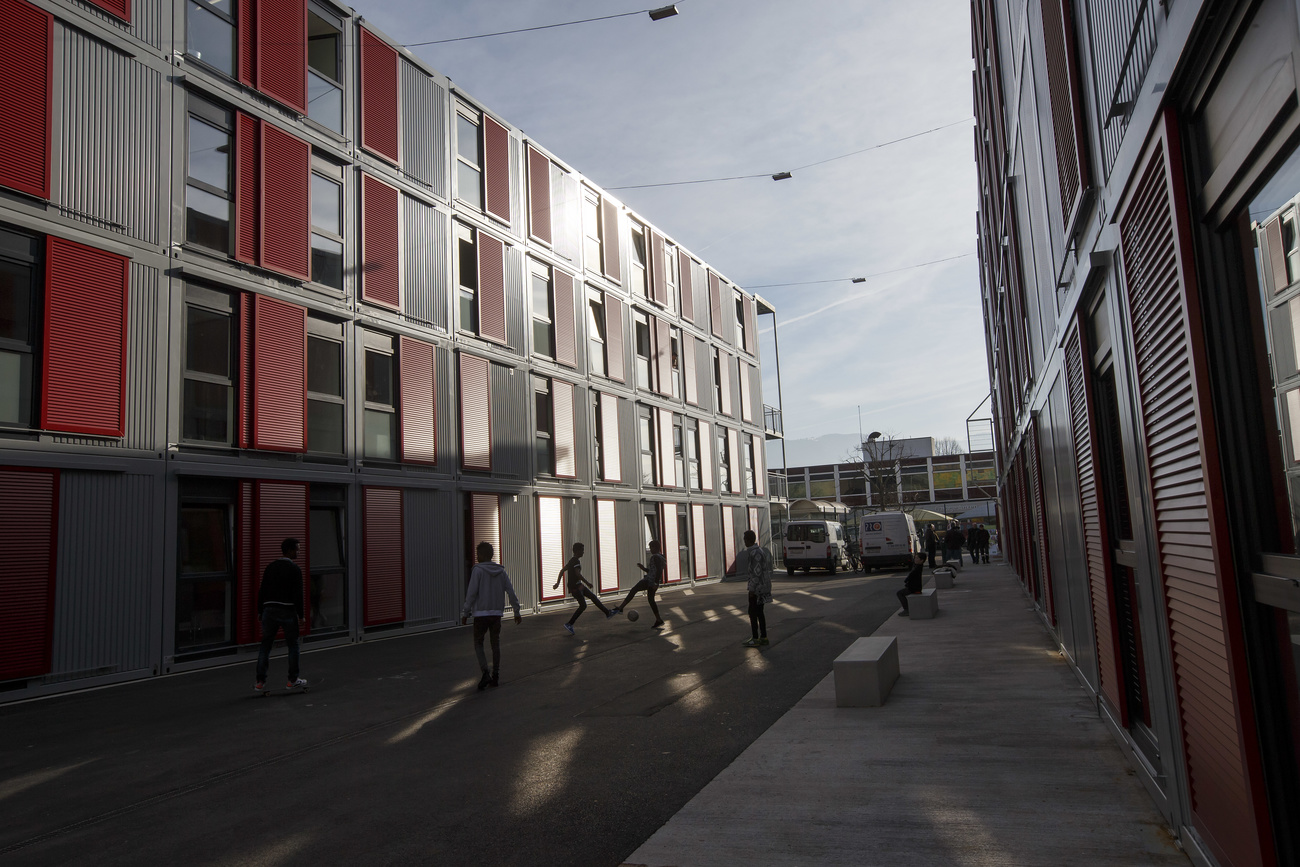
Asylum returns from Switzerland rose by a fifth in 2023

The number of rejected asylum seekers who left Switzerland last year rose significantly, and not just because of the overall rise in asylum applications, migration authorities have said.
Anyone who receives neither a positive decision nor a temporary admission status at the end of their asylum procedure must leave the country voluntarily or be forced to do so.
Reto Kormann from the Swiss State Secretariat for Migration (SEM) says this “return” policy mainly affects people from countries from which many asylum applications come, but where the prospect of being granted asylum in Switzerland is very low.
“This includes Algeria, for example, where [last year] we were able to repatriate almost 500 people who had been turned away,” Kormann told Swiss public radio, SRF, on Tuesday. Turkey and Georgia are also at the forefront, said Kormann.
+ More about the Swiss asylum system and how it works
Years of development
Asylum seekers from the Maghreb, most of them young men who have fled for economic reasons, are particularly affected by returns. Their chances of being granted asylum are marginal, which is why SEM is particularly proud of its cooperation with Algeria. Years of efforts to reach a migration agreement were a prerequisite for such cooperation.
“You have to build trust,” said Kormann. “This not only involves maintaining a dialogue with these countries, but also through signing migration and return agreements and partnerships.” Return cooperation is institutionalised and then developed over time, which means years of continuous trust and updating work. Thanks to this, special deportation flights to Algeria were possible for the first time.
Increase in applications
In addition to better cooperation with countries of origin, the increased returns are also a result of significantly more asylum applications (which rose by some 30%), some of which were decided very quickly. Despite more returns, the backlog has not been cleared: there are roughly the same number of people waiting to be returned as a year ago.
+ Read more: Switzerland joins calls for overhaul of European asylum rules
SEM’s repatriation statistics also show something else: Switzerland continues to benefit greatly from the Dublin system governing European asylum. In 2023, it transferred three times more asylum seekers to other Dublin states than it had to take in. This is despite the fact that Italy – an important neighbouring country in migration matters – currently no longer accepts Dublin returns.
This news story has been written and carefully fact-checked by an external editorial team. At SWI swissinfo.ch we select the most relevant news for an international audience and use automatic translation tools such as DeepL to translate it into English. Providing you with automatically translated news gives us the time to write more in-depth articles.
If you want to know more about how we work, have a look here, and if you have feedback on this news story please write to english@swissinfo.ch.

In compliance with the JTI standards
More: SWI swissinfo.ch certified by the Journalism Trust Initiative





























You can find an overview of ongoing debates with our journalists here . Please join us!
If you want to start a conversation about a topic raised in this article or want to report factual errors, email us at english@swissinfo.ch.